David Bombara
Discounted Adaptive Online Prediction
Feb 05, 2024



Abstract:Online learning is not always about memorizing everything. Since the future can be statistically very different from the past, a critical challenge is to gracefully forget the history while new data comes in. To formalize this intuition, we revisit the classical notion of discounted regret using recently developed techniques in adaptive online learning. Our main result is a new algorithm that adapts to the complexity of both the loss sequence and the comparator, improving the widespread non-adaptive algorithm - gradient descent with a constant learning rate. In particular, our theoretical guarantee does not require any structural assumption beyond convexity, and the algorithm is provably robust to suboptimal hyperparameter tuning. We further demonstrate such benefits through online conformal prediction, a downstream online learning task with set-membership decisions.
Overtwisting and Coiling Highly Enhances Strain Generation of Twisted String Actuators
Sep 23, 2022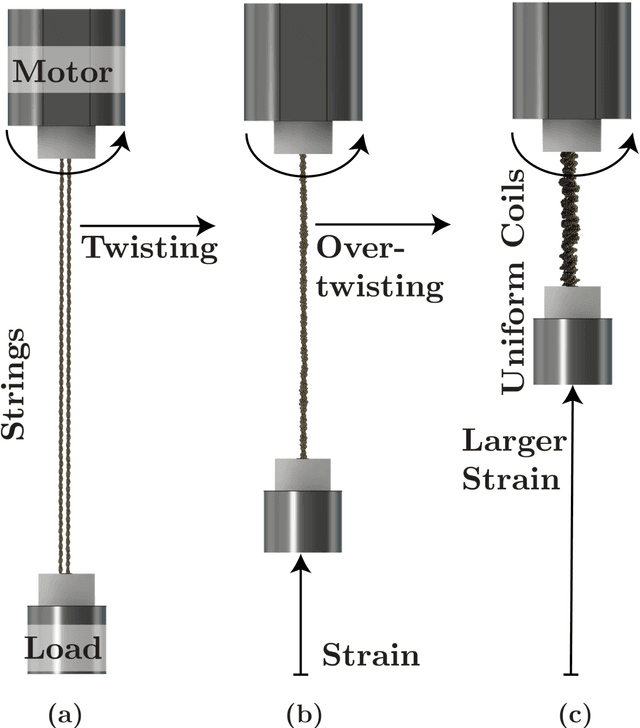
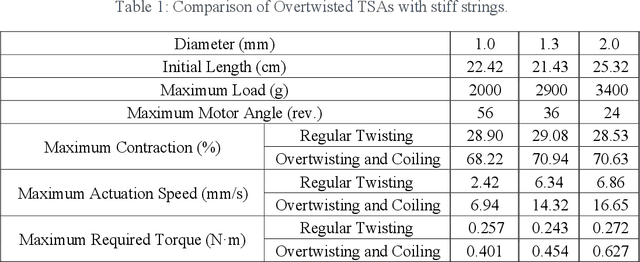
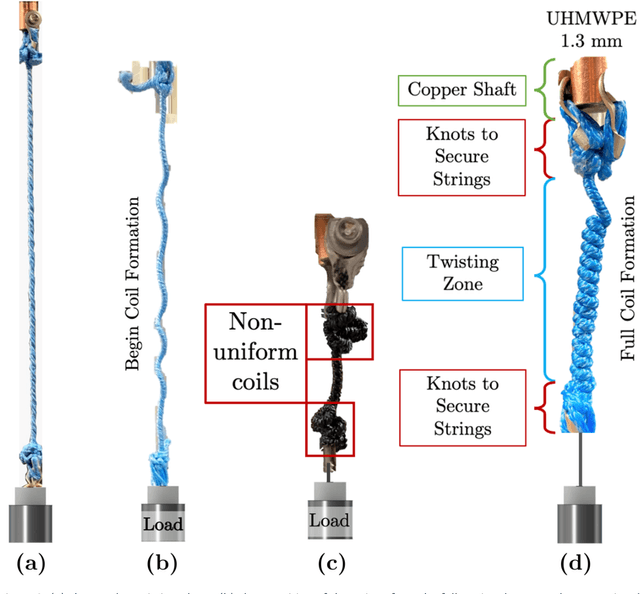
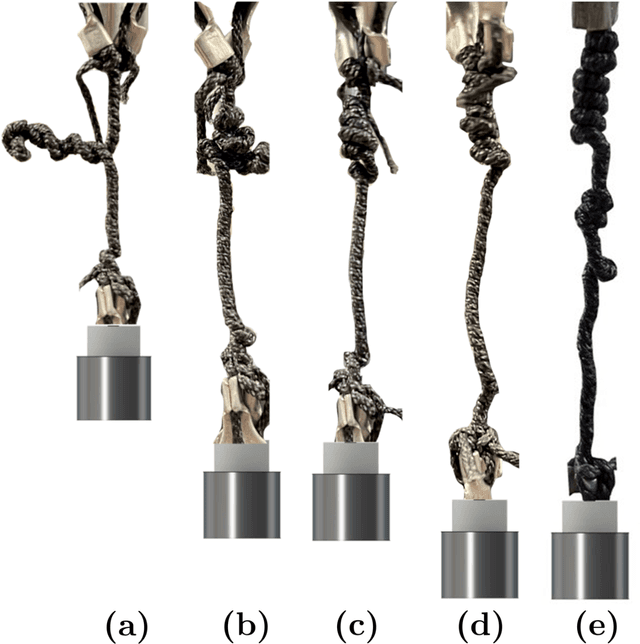
Abstract:Twisted string actuators (TSAs) have exhibited great promise in robotic applications by generating high translational force with low input torque. To further facilitate their robotic applications, it is strongly desirable but challenging to enhance their consistent strain generation while maintaining compliance. Existing studies predominantly considered overtwisting and coiling after the regular twisting stage to be undesirable non-uniform and unpredictable knots, entanglements, and coils formed to create an unstable and failure-prone structure. Overtwisting would work well for TSAs when uniform coils can be consistently formed. In this study, we realize uniform and consistent coil formation in overtwisted TSAs, which greatly increases their strain. Furthermore, we investigate methods for enabling uniform coil formation upon overtwisting the strings in a TSA and present a procedure to systematically "train" the strings. To the authors' best knowledge, this is the first study to experimentally investigate overtwisting for TSAs with different stiffnesses and realize consistent uniform coil formation. Ultra-high molecular-weight polyethylene (UHMWPE) strings form the stiff TSAs whereas compliant TSAs are realized with stretchable and conductive supercoiled polymer (SCP) strings. The strain, force, velocity, and torque of each overtwisted TSA was studied. Overtwisting and coiling resulted in approximately 70% strain in stiff TSAs and approximately 60% strain in compliant TSAs. This is more than twice the strain achieved through regular twisting. Lastly, the overtwisted TSA was successfully demonstrated in a robotic bicep.
Anthropomorphic Twisted String-Actuated Soft Robotic Gripper with Tendon-Based Stiffening
Jul 07, 2022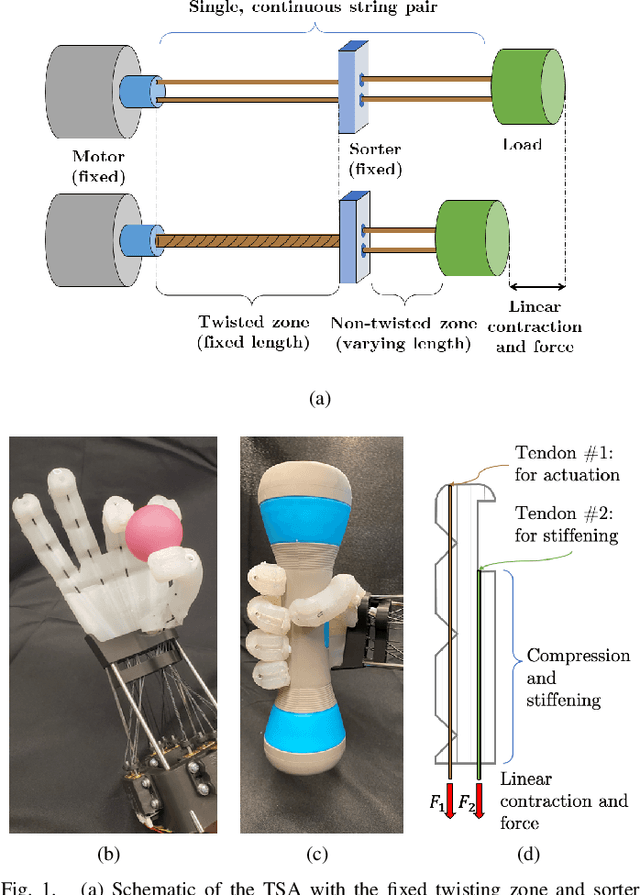
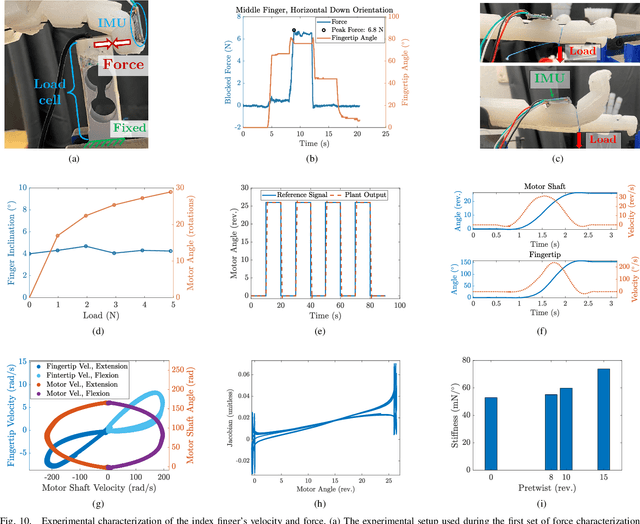
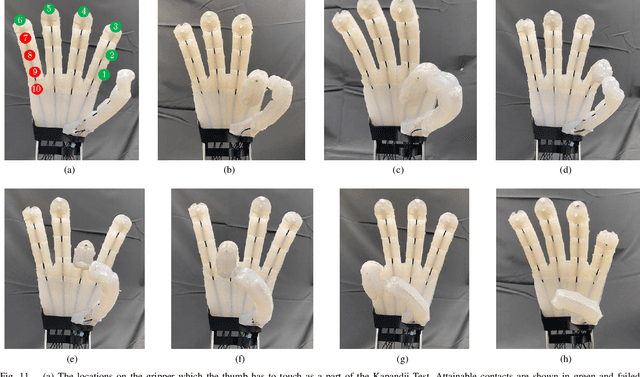
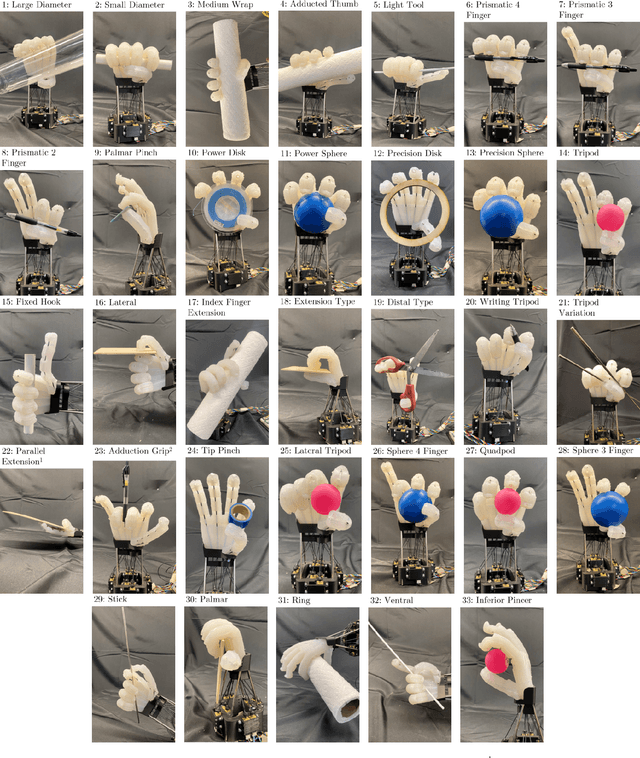
Abstract:Realizing high-performance soft robotic grippers is challenging because of the inherent limitations of the soft actuators and artificial muscles that drive them. Although existing soft robotic grippers exhibit acceptable performance, their design and fabrication are still an open problem. This paper explores twisted string actuators (TSAs) to drive a soft robotic gripper. TSAs have been widely used in numerous robotic applications, but their inclusion in soft robots has been limited. The proposed design of the gripper was inspired by the human hand, with four fingers and a thumb. Tunable stiffness was implemented in the fingers by using antagonistic TSAs. The fingers' bending angles, actuation speed, blocked force output, and stiffness tuning were experimentally characterized. The gripper was able to achieve a score of 6 on the Kapandji test, and was also to achieve 31 of the 33 grasps of the Feix GRASP taxonomy. A comparison study revealed that the proposed gripper exhibited equivalent or superior performance compared to other similar grippers.
 Add to Chrome
Add to Chrome Add to Firefox
Add to Firefox Add to Edge
Add to Edge